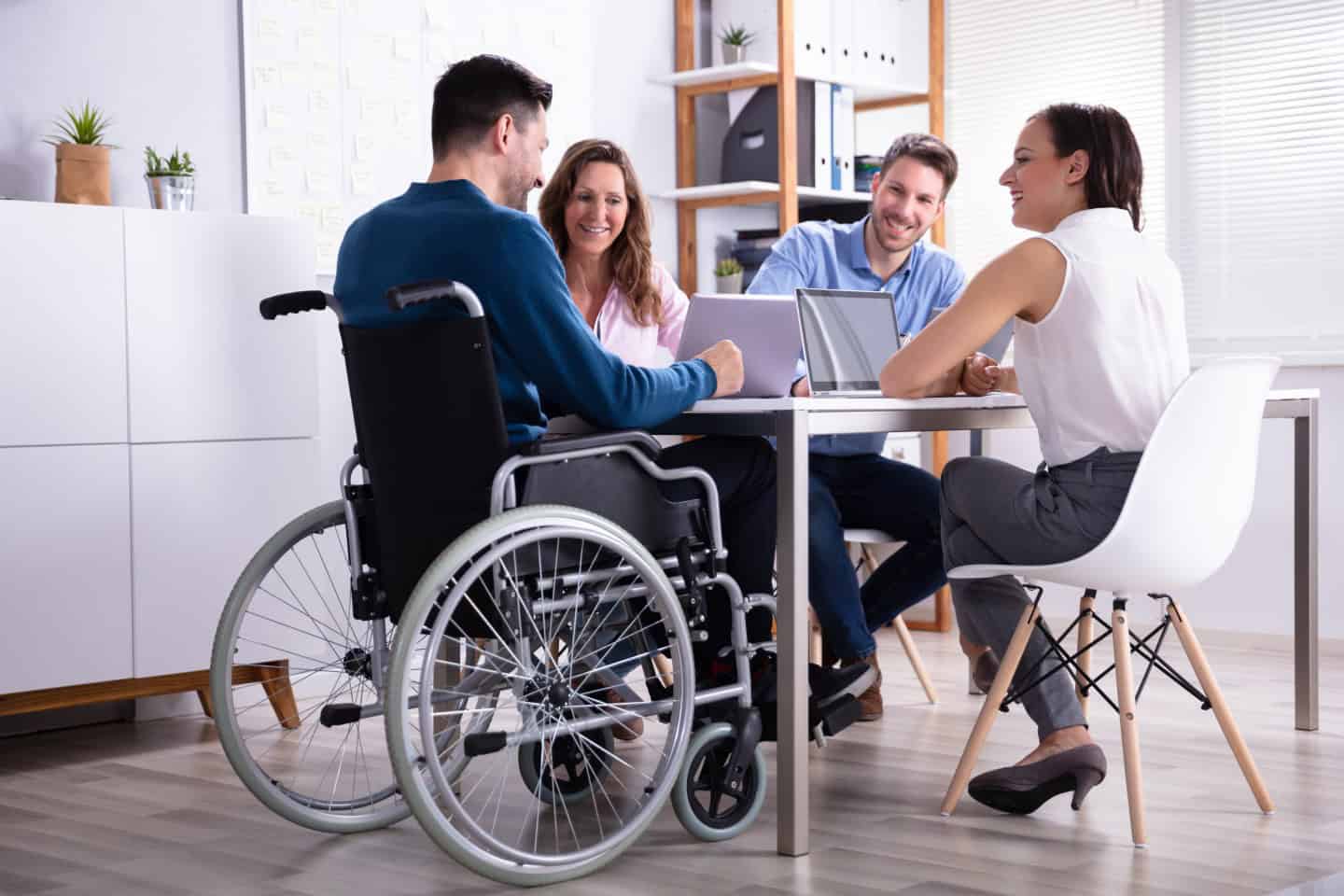
Cauda Equina Spinal Cord Injury group & BBK join forces again
As we begin our second year of partnership with the Cauda Equina Spinal Cord Injury group, I wanted to take a moment to reflect on the incredible work this group has been doing, and the inspiring community they have built, supporting those who developed Cauda Equina Syndrome.
But first, I hear you ask What is Cauda Equina Syndrome?
I have previously written this blog to provide an in-depth explanation of the condition and its red flags.
In brief, Cauda Equina Syndrome (CES) is a rare but serious condition, that occurs when the nerve roots at the end of the spinal cord are becoming compressed. Warning signs for CES include sudden onset of severe low back pain, bladder and bowel dysfunction, and sensory changes in the saddle area and in the legs. Delays in diagnosis and treatment of this condition can have dire consequences and may result in significant disability, including impaired mobility, bowel, bladder, and sexual dysfunction, as well as a significant effect on mental health. Prompt diagnosis and treatment are crucial to avoid or lessen these effects. It is also essential that specialist rehabilitation is received by anyone who has developed this condition and remains symptomatic, to ensure the best possible recovery. Diagnosis is typically made through an MRI scan, and urgent surgical intervention is required to prevent permanent nerve damage. Rehabilitation following surgery should be holistic and address all areas of ongoing disability, including (neuro) physiotherapy, occupational therapy, pain management, bladder and bowel management, as well as psychological therapy. Regrettably, delays in diagnosis and treatment have become increasingly prevalent, and these instances appear to be on the rise due to the current challenges faced by the NHS, all of which is then made worse by delays in receiving specialist rehabilitation after surgery.
Meet the Cauda Equina Spinal Cord Injury group
The Cauda Equina Spinal Cord Injury (CESCI) group is a community-driven support group for individuals living with Cauda Equina Syndrome and their families. Founded by Allison and Nigel Whitehorn, the group offers practical, emotional, and knowledge-based support to those affected by CES.
It feels like I’ve known Allison and Nigel forever, even though it was about three years ago when we first met. Time flies when you’re in good company! From the moment we first connected, it was clear that we shared a common passion and drive to help people with cauda equina syndrome. Allison’s deep understanding of the condition and its effects, based on her own lived experience, combined with her compassionate and proactive attitude, makes her an invaluable resource. Whenever I speak with individuals living with Cauda Equina Syndrome, who have been supported by Allison, their words invariably overflow with admiration and gratitude for her support. Her optimistic attitude towards life after her own injury has given many of them hope and taught how to embrace the challenges in their own lives.
Nigel is a vital member of CESCI, and his support for his wife Allison as she battled through the challenges of life after first developing CES is truly admirable. As a result of his own experiences, Nigel has a unique perspective and understanding of the condition and its impact on both the individual, and their loved ones. He now uses this insight to support spouses of CES sufferers and to help men living with CES navigate the more intimate aspects of the condition. Nigel’s jovial and pragmatic approach to life is infectious, and his dedication to making a positive impact on the lives of those affected by CES is truly inspiring.
It’s been an absolute pleasure working with them both and observing the incredible work they’re doing.
Our exciting journey with Cauda Equina Spinal Cord Injury Group so far
We are now in our second year of partnership, and it’s been such a wonderful experience! I have had the privilege of working closely with CESCI during this time, witnessing first-hand the incredible work that Allison and Nigel are doing to support their growing community.
Allison has an innate sense of knowing when someone may need a little extra support and will reach out to them without hesitation. She is always checking in with members of the group, making sure they are okay and offering a shoulder to cry on, or an ear to listen. You can find her on the group’s Facebook page pretty much every hour of the day, providing advice and words of encouragement to anyone who needs it. People know they can reach out to her at any time, whether they’re feeling low, isolated, or just need someone to talk to.
Allison’s work as an ambassador for Coloplast, and her dedication to ensuring that those living with CES have access to the most appropriate bowel and bladder management products and specialist care, are equally impressive. I was able to witness the positive effect of one such collaboration during one of the meetings and how the group benefited from being able to ask questions and discuss their specific needs confidentially, as well as trial various products to ensure that the most appropriate one can be selected.
Allison is a true advocate for those living with Cauda Equina Syndrome, and she goes above and beyond to ensure that healthcare professionals understand the importance of prompt and specialist treatment. She regularly speaks to junior doctors, nurses, and other healthcare professionals sharing her own CES story and the challenges she faced. Allison hopes to ensure that the failings in care, which she sadly experienced, are not repeated, as well as educating healthcare professionals about the importance of specialist treatment, to manage the condition post-surgery and avoid further complications.
As a lawyer, I know just how important it is for individuals affected by life-changing medical conditions to have access to support and information. That’s why I am so inspired and impressed by the work that CESCI are doing, and I am honoured to be a part of their journey.
Examples of the positive impact Cauda Equina Spinal Cord Injury Group
Allison and Nigel really go the extra mile to support their members, in whatever way necessary.
I remember hearing one story about a member who was in desperate need of a wheelchair, but had been denied one by the NHS wheelchair services. Without hesitation, Allison and Nigel worked tirelessly to locate a suitable wheelchair, gave it a good MOT, and arranged for it to be delivered to the member. The reaction of the member, who was stunned and overjoyed to receive the wheelchair, is a testament to the impact that Allison and Nigel are having on their community.
Here’s another story which demonstrates the group’s dedication to each other. It was a dark and difficult time for one member of CESCI. Struggling with the effects of his disability, he had become increasingly isolated and depressed. That’s when Allison and Nigel sprang into action, organising a virtual get-together for the group. Attendees included some experienced individuals, who knew how to support those going through tough times emotionally. As the meeting progressed, something truly magical happened. The individual who had been so low and isolated began to open up and share his feelings. The atmosphere was a mix of tears and laughter, and at the end of the call, there was a palpable sense of relief and gratitude. The person in question sent a heartfelt message to Nigel and Allison, expressing their gratitude for organising the event, saying it had lifted his spirits and given him hope for the future.
Allison and Nigel’s unwavering commitment to helping others is also evident in their extensive travels across the UK. They have even journeyed to distant locations, like Glasgow, despite residing in the South of England, to ensure that they can reach members in all corners of the UK.
Future
Looking to the future, we are excited to see the group continue to expand their support network and raise awareness of Cauda Equina Syndrome.
We are delighted to see that Allison and Nigel now receive support from the wonderful duo of Claire and Roger. Based in the North of England, they not only share their own lived experiences of cauda equina syndrome, with Claire herself being a CES survivor, but they are also instrumental in organising support for those affected by the condition. This new collaboration is a welcome development, as it helps to broaden the community’s reach and guarantees that members can access essential support whenever they need it.
This year, the GIRFT program has introduced a Cauda Equina Syndrome (CES) pathway, which is designed to improve the diagnosis, treatment as well as rehabilitation of CES patients. The pathway is intended to set down a comprehensive roadmap for CES management, encompassing all stages from the preliminary assessment, to the eventual rehabilitation phase.
Although this development is encouraging, how the pathway will be implemented is yet to be seen. One thing I am certain of however, is that CESCI will be vigilantly tracking this progress, offering feedback, and championing their members’ interests, to ensure that the pathway is followed across the board.
We are proud to be partnered with CESCI and look forward to catching up with them at the forthcoming group meetings, as well as providing our legal expertise to their members and supporting them in any way we can.
We are also excited to get involved with forthcoming fundraising initiatives as well as opportunities to raise awareness of CES.










